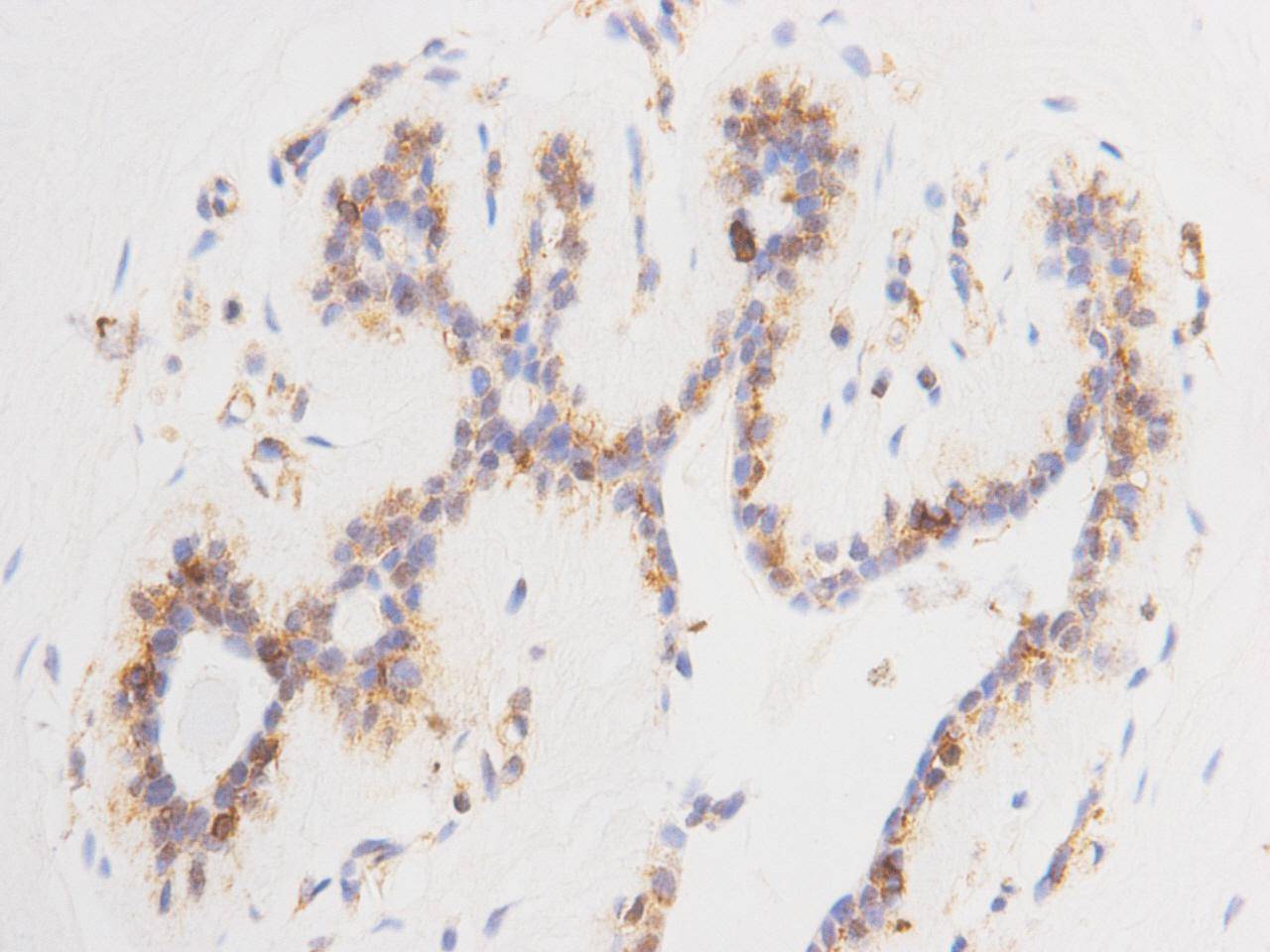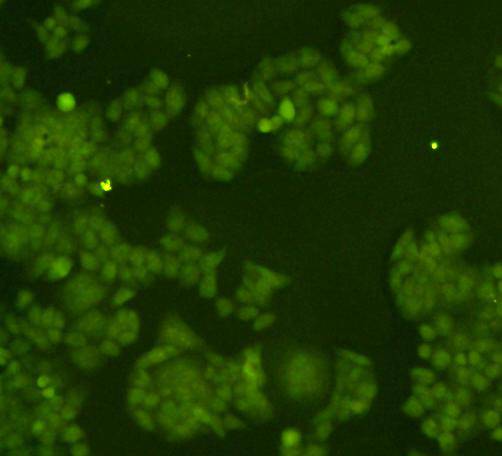Product Detail
Product Name14-3-3 b/a Antibody
Clone No.926
Host SpeciesMouse
ClonalityMonoclonal
PurificationProA affinity purified
ApplicationsWB, ICC, IHC
Species ReactivityHu, Ms, Rt, zebrafish
Immunogen Descpeptide
ConjugateUnconjugated
Other Names14 3 3 alpha antibody
14 3 3 protein beta/alpha antibody
14-3-3 protein beta/alpha antibody
1433B_HUMAN antibody
Brain protein 14 3 3 beta isoform antibody
GW128 antibody
HS 1 antibody
KCIP-1 antibody
KCIP1 antibody
N-terminally processed antibody
Protein 1054 antibody
Protein kinase C inhibitor protein 1 antibody
YWHAA antibody
YWHAB antibody
Accession NoSwiss-Prot#:P31946
Uniprot
P31946
Gene ID
7529;
Calculated MW28 kDa
Formulation1*TBS (pH7.4), 1%BSA, 40%Glycerol. Preservative: 0.05% Sodium Azide.
StorageStore at -20˚C
Application Details
WB: 1:1,000-1:2,000
IHC: 1:200
ICC: 1:100
Western blot analysis on mouse liver lysates using anti-14-3-3b/a Mouse mAb (Cat. # M0407-14).
Immunohistochemical analysis of paraffin- embedded human breast carcinoma tissue using anti-14-3-3b/a Mouse mAb (Cat. # M0407-14).
Immunofluorescent staining of Hela cells using anti-14-3-3b/a Mouse mAb (Cat. # M0407-14).
The 14-3-3 proteins are a family of proteins involved in the regulation of apoptosis, mitogenic signaling and cell-cycle checkpoints. The 14-3-3 proteins are thought to be key regulators of signal transduction events mediated through their binding to serine-phosphorylated proteins. Through binding Bad, 14-3-3 prevents apoptosis by sequestering Bad to the cytosol. The 14-3-3 proteins are also Adapter protein implicated in the regulation of a large spectrum of both general and specialized signaling pathway. They bind to a large number of partners, usually by recognition of a phosphoserine or phosphothreonine motif. Binding generally results in the modulation of the activity of the binding partner.
If you have published an article using product 48054, please notify us so that we can cite your literature.





 Yes
Yes



